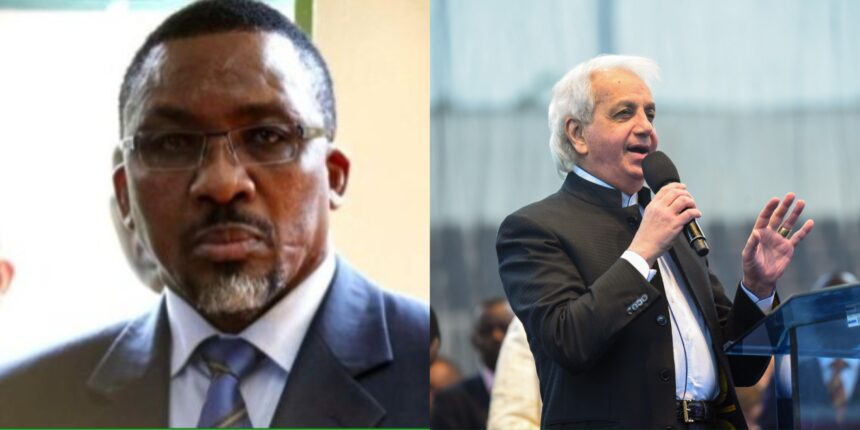Neno Evangelism founder Pastor James Ng’ang’a has voiced his disappointment with the recent crusade led by Benny Hinn at Nyayo Stadium in Kenya. Ng’ang’a, who was present among the Kenyan preachers at the event, expressed concerns about Hinn’s performance and his own level of recognition during the proceedings.
Pastor Ng’ang’a Speaks
During a sermon delivered to his congregation on Sunday, February 25, Ng’ang’a remarked on Hinn’s struggles during the service, particularly in his singing. Despite attending with an open mind to witness how God works through Hinn, Ng’ang’a found himself underwhelmed by the televangelist’s delivery.
I went to the meeting. I just went to see how God uses him. I will not speak now, but something is wrong. That man struggled. He struggled. He is a singer and he sang in my presence, but he struggled,” Ng’ang’a disclosed.
Not only was Ng’ang’a critical of Hinn’s performance, but he also highlighted his own perceived lack of acknowledgement at the event. According to Ng’ang’a, he was mentioned only once throughout the proceedings and was seated at a distance from the main stage. Feeling overlooked, Ng’ang’a expressed his discontent, stating, “I am a man of tactics. I was put to sit somewhere at a table that was not so close. I was only recognized once. Greet somebody and tell them to mind your own business.”
The dissatisfaction expressed by Ng’ang’a regarding both Hinn’s performance and his own level of recognition underscores the complexity of religious events and the dynamics between different religious figures. Ng’ang’a’s critique also raises questions about the expectations placed on high-profile religious gatherings and the interactions between prominent figures within the faith community.
It’s worth noting that Ng’ang’a’s church’s TV channel, Sasa TV, also broadcasted Hinn’s event, indicating a level of engagement and interest in the proceedings despite the criticisms voiced by Ng’ang’a. This juxtaposition highlights the nuanced nature of religious engagement and the various perspectives that can emerge within the religious community.
As debates surrounding religious leadership and events continue, Ng’ang’a’s remarks serve as a reminder of the diverse viewpoints and expectations present within the faith community, and the importance of open dialogue and reflection within religious circles.














